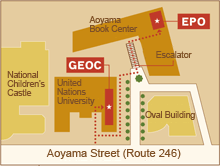Overview
Important political commitment has been discussed and agreed at the COP10 of the Convention on Biological Diversity; Strategic Plan for Biodiversity 2011-2020 and Nagoya Protocol on Access and Benefit-Sharing and so on. Importance of the Indigenous peoples’ participation and the respect for the United Nations Declaration on the Rights of Indigenous Peoples are defined in the decisions.
As such, Tebtebba Foundations runs a program called Indigenous Peoples and Biodiversity Programme in order to fulfill the global policy commitment on Biodiversity, Indigenous People and Traditional Knowledge. Under this programme, Tebtebba Foundation acts to facilitates the cross-sectoral arrangement with international institutions, governments, industrial groups, NGOs and ILCs and so on at international, regional, national, local level.
For example, Philippines lacks in national legislation or policies on indigenous peoples rights. Tebtebba Foundation encourages government to build national monitoring, including through indicators relevant for indigenous people and local communities.
Points about the partnership
Joji Carino, team leader of the program also acts as a coordinator of the working group on Indicators of the International Indigenous Forum on Biodiversity (IIFB), and has organized technical workshops on indicators relevant for Indigenous Peoples in the Strategic Plan for Biodiversity and on Indigenous Peoples’ Well-being.
Category
Through multi-stakeholder partnership/cooperation
Theme
Biodiversity
Actors
Tebtebba Foundation: Indigenous Peoples’ International Center for Policy Research and Education
Partners:
Governments, International Institutions, IIFB (International Indigenous Forum on Biodiversity), Government of Philippines, etc.
Relevant website
2011-2020 United Nations Biodiversity Decade Launched in Kanazawa City, Ishikawa Prefecture, Japan

















